How’s everyone holding up out there? No doubt with less physical things to do, and all that time saved from not being able to travel anywhere (not even to work!), you’ve likely seen the reports coming out about how social distancing is impacting the world in some surprisingly positive ways. From satellite images showing pollution drops over China and Italy, to clearer water running through the Venice Canal (and dolphins swimming through, albeit wishful thinking), it’s easy to see that limiting our non-essential activities, adopting work-from-home habits, and staying home more is giving our shared home, planet Earth, a much-needed breather as well.
So much so that in this article about plummeting emission and air pollution rates, scientists say that this year “by May, when CO2 emissions are at their peak thanks to the decomposition of leaves, the levels recorded might be the lowest since the financial crisis over a decade ago.” To be honest, we were also just fascinated by the contribution that decaying leaves have to CO2 emissions!
Additionally, NASA has released images showing the significant drop in air pollution above countries that have quarantines from COVID-19.
Rebound effects
All of this has comes, though, with a secondary warning. When we do resume normal activities and people start to venture back out all over the world en mass, the carbon emissions and pollution levels could rise back up rapidly. This is not just because of the increase in transportation, but also because of a compensating attempt to ramp-up production and the desire to get back to “normal”, along with stimulus spending intended to jump-start the economy (which, as a reminder, is measured in GDP, a systems failure, because it doesn’t account for any impacts against Earth’s natural resources!). In fact, following the closure of many Chinese factories, and the recent reopening, air pollution levels are already on the rise again in China. This also matters a lot right now, as some scientists have said that air pollution could be one of the triggers for making the coronavirus worse.
Transport options matter when it comes to climate change
So, what if we start making the case now for actually continuing some of these social distancing practices that we expeditiously adopted during the past month? No, we’re not suggesting continuing on with full lock-down; freedom is vital — but what about changing the way we commute to work or run our businesses?
Individual Actions
There is an enormous opportunity for companies to widely adopt more work-from-home or flexible travel policies following this pandemic — and for individuals to advocate for it too. Take the fact that for most Americans, their transport biggest emissions impact is in their daily drive to work. Even if companies don’t go totally remote, it could make a substantial difference to implement more remote work policies and cut down on flights for meetings, conferences, trainings, etc.
Pulling out some of the actions we’re all learning to adjust to right now may offer us some great new sustainable lifestyle and workplace options after we get through this chaos.
Perhaps one of the most powerful amplification points here is in the illumination that yes, individual actions do collectively make a difference. If it’s every person overbuying loo roll, or baby carrots for that matter, everything we each do attributes to a bigger system wide impact. To be clear, this isn’t a scapegoat attempt to place the responsibility of creating a sustainable future solely on individuals (Leyla writes about this really well in her new handbook Design Systems Change), but more so encouragement to believe in the power of individual agency as it pertains to everyday actions. Even though it may seem that we currently have no control over the outcomes in relation to this pandemic, a quick mindset shift can showcase exactly how much control we do have over environmental impacts through the actions we do or do not take on a daily basis. This was the basis for our collaboration with the UNEP, the Anatomy of Action, in which we assessed the power lifestyle swaps across food, stuff, movement, money, and fun — all of which are being significantly disrupted by the current coronavirus outbreak.
Rethinking habits
In recent weeks and even days, you’ve likely had to rethink your daily eating habits as restaurants have shut down and many panicked shoppers cleared shelves of food. You have had to change the way you communicate with loved ones and colleagues. We’ve seen people rethink how to have fun and be social, how to care for others, with an uptick in spending time on personal hobbies and engaging in funny, creative video chats, dance parties, remote happy hours, yoga classes, and endless live streams on Instagram. Every area of our lives has experienced significant, rapid change — and we’re figuring out how to deal with that day by day. Imagine if we could do this for dealing with another existential threat — climate change! Or take this time to figure out the positive benefits that a slower world has on the systems that sustain us.
Discover more at online.unschools.co
So maybe, we can also take this rare pause from our usual busy hustle to take a long hard look at how out of alignment our current habits and global systems have been with the Earth’s systems that sustain us all. Instead of reacting to the next *insert catastrophic event here*, we can take a proactive approach to making the future work better for us all through shifts in our everyday habits.
One of the big things we always talk about at the UnSchool is that there is no failure — only opportunities to gain new knowledge that informs our actions for the future. That new knowledge is here, and it’s offering us the right set of circumstances to amplify our collective superpowers through the unstoppable force of individuals activating their agency.
What habits can you commit to continuing to help build a sustainable, regenerative future, once “normal” life resumes?











